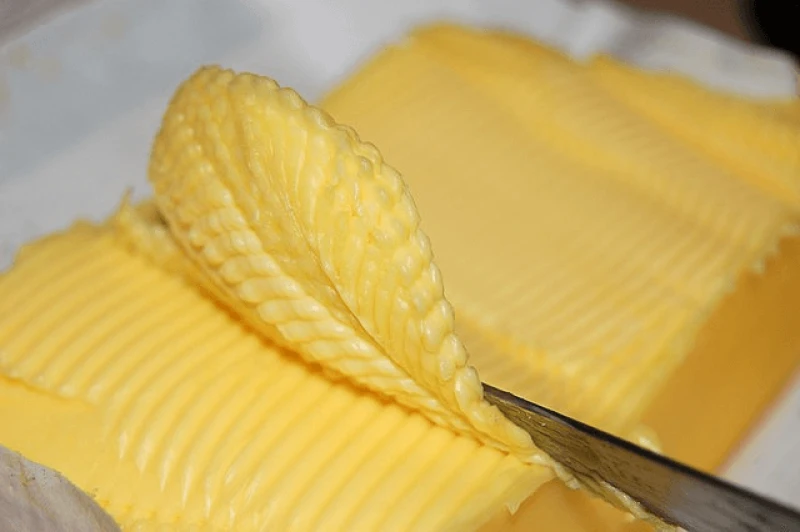Butter substitute made from CO2? Carbon-capture technology could help us replace unsustainable palm oil
Butter substitute made from CO2? Carbon-capture technology could help us replace unsustainable palm oil


A new type of dietary fat that doesn’t require animals or large areas of land to produce could soon be on sale in the US as researchers and entrepreneurs race to develop the first “synthetic” foodstuffs.
US start-up Savor has created a “butter” product made from carbon, in a thermochemical system closer to fossil fuel processing than food production. “There is no biology involved in our specific process,” says Kathleen Alexander from the firm.
…
Synthetic fats could revolutionise the food system by providing calories while freeing up land for conservation and carbon storage, says Alexander. Products made this way could also provide a food source in the event of environmental disaster. “If we had an emergency, this could feed the whole planet for a really long time,” she says.
If the process of synthetic fat production is powered with renewable energy and made using captured carbon as a feedstock, it could be “dramatically better than anything we are doing in agriculture today”, says Steven Davis at Stanford University, the lead author of the study.
He thinks synthetic foods could offer climate benefits. “I don’t think we will get to the point where we are making all our food synthetically, but if we could make a dent in it by synthesising things like these otherwise quite-greenhouse-gas-intensive oil crops such as palm oil and soybeans, we could really reduce the amount of land that we need for our food supply,” he says.

 | Videos | More... |

Video: Nuclear energy will destroy us? Global warming is an existential threat? Chemicals are massacring bees? Donate to the Green Industrial Complex!
 | Bees & Pollinators | More... |

GLP podcast: Science journalism is a mess. Here’s how to fix it

Mosquito massacre: Can we safely tackle malaria with a CRISPR gene drive?

Are we facing an ‘Insect Apocalypse’ caused by ‘intensive, industrial’ farming and agricultural chemicals? The media say yes; Science says ‘no’
 | Infographics | More... |

Infographic: Global regulatory and health research agencies on whether glyphosate causes cancer
 | GMO FAQs | More... |

Why is there controversy over GMO foods but not GMO drugs?

How are GMOs labeled around the world?

How does genetic engineering differ from conventional breeding?
 | GLP Profiles | More... |

Alex Jones: Right-wing conspiracy theorist stokes fear of GMOs, pesticides to sell ‘health supplements’




 Viewpoint — Fact checking MAHA mythmakers: How wellness influencers and RFK, Jr. undermine American science and health
Viewpoint — Fact checking MAHA mythmakers: How wellness influencers and RFK, Jr. undermine American science and health Viewpoint: Video — Big Solar is gobbling up productive agricultural land and hurting farmers yet providing little energy or sustainabilty gains
Viewpoint: Video — Big Solar is gobbling up productive agricultural land and hurting farmers yet providing little energy or sustainabilty gains Fighting deforestation with CO2: Biotechnology breakthrough creates sustainable palm oil alternative for cosmetics
Fighting deforestation with CO2: Biotechnology breakthrough creates sustainable palm oil alternative for cosmetics Trust issues: What happens when therapists use ChatGPT?
Trust issues: What happens when therapists use ChatGPT? 30-year-old tomato line shows genetic resistance to devastating virus
30-year-old tomato line shows genetic resistance to devastating virus California, Washington, Oregon forge immunization alliance to safeguard vaccine access against federal undermining
California, Washington, Oregon forge immunization alliance to safeguard vaccine access against federal undermining The free-range chicken dilemma: Better for birds, but with substantial costs
The free-range chicken dilemma: Better for birds, but with substantial costs ‘You have to treat the brain first’: Rethinking chronic pain with Sanjay Gupta
‘You have to treat the brain first’: Rethinking chronic pain with Sanjay Gupta
